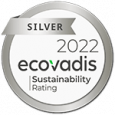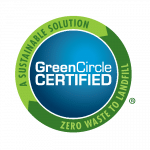Is your Business Complying with EPR Packaging Laws?
Extended producer responsibility (EPR) laws hold producers accountable for the entire lifecycle of their products. Producers can be brands, licensees, or importers/distributors. These laws are present worldwide, especially in Europe and Canada, and are increasingly being implemented at the state level in the United States. While many U.S. states already have requirements for e-waste and batteries, recent EPR laws have begun targeting packaging materials, paper and plastic products, and food service ware.
Below is an overview of the current EPR packaging laws in the United States, proposed legislation, and compliance responsibilities for product manufacturers to consider.
(Plastic Pollution Prevention and Packaging Producer Responsibility Act SB 54) – EPR Law enacted 6/30/2022. Producer responsibility program for producers of single-use packaging and plastic single-use food service ware. Producers of covered material sold, offered for sale, imported, or distributed in California are required to: (1) meet plastic source reduction requirements; (2) ensure that covered material is recyclable in the state or eligible to be labeled “compostable” by January 1, 2032; and (3) ensure that plastic covered material meets phased percentage recycling rates. Producers are required to form and join a Producer Responsibility Organization (PRO) by January 1, 2024.
(Statewide Recycling Act, House Bill 22-1355) – EPR Law enacted 6/03/2022. The producer responsibility program focuses on producers of single- or short-term use packaging materials and paper products, including food and beverage packaging. The state of Colorado has designated a PRO that producers must join by June 1, 2025.
(Extended Producer Responsibility Program for Packaging LD 1541)– EPR Law enacted 7/12/2021. The producer responsibility program for packaging material requires producers to pay into a fund based on the amount and recyclability of packaging associated with their products. Maine DEP is required to select and enter into a contract with a stewardship organization (SO) that will administer the program, and all producers must comply with and fund the program within a year. The DEP does not anticipate selection of an SO until 2026.
(Plastic Pollution and Recycling Modernization Act SB 582)– EPR Law enacted 8/6/2021. The producer responsibility program requires producers of covered products to join and pay into a PRO. Covered products include packaging, printing, and writing paper, and food service ware. Each producer must register with the PRO and pay annual fees after the plans go into effect on July 1, 2025.
Both failed to enact Packaging EPR laws in 2023 but successfully passed Packaging EPR study bills.
Both were unsuccessful in passing Packaging EPR bills in 2023.
Minnesota
On May 21, 2024, Minnesota Governor Tim Walz signed the Packaging Waste and Cost Reduction Act into law, becoming the fifth state to establish an EPR program for packaging and paper products. The Act mandates the MPCA to form a Producer Responsibility Advisory Board and appoint a Producer Responsibility Organization (PRO) by January 1, 2025. Producers must register with the PRO by July 1, 2026, after its appointment. The MPCA must also conduct a needs assessment by December 31, 2025, and every five years thereafter, to set performance targets for producers.
Massachusetts bill has not been passed yet.
(HHW EPR Law (Act 58)) – Enacted June 2023. Vermont requires manufacturers of covered products to assist with covering the costs for managing these wastes at their end-of-life. The law requires manufacturers to help fund the waste collection system and offer public education including source reduction information for consumers. Below is the Vermont HHW EPR Law Implementation Timeline:
- January 15, 2024 – Vermont Agency of Natural Resources (ANR) shall submit a recommended annual registration fee for its oversight of the household hazardous waste EPR program.
- January 1, 2025 – Stewardship Organization. Registration: A stewardship organization shall file a registration form with ANRANR, and the Secretary shall only approve one stewardship organization for the first collection plan (up to 5 years).
- July 1, 2025 – Collection Plan: For the first Collection Plan one stewardship organization registered with ANR must submit ONE Collection Plan for all manufacturers to ANR. ANR shall approve the Plan for up to 5 years. ANR must hold public comment period during approval process. After the first collection plan (up to 5 years), multiple stewardship organizations may register with ANR and must collaborate to submit ONE Collection Plan for the next plan period.
- July 1, 2025 – Covered HHW Disposal Banned: Landfill disposal ban on Covered Household Hazardous Waste goes into effect.
- 6-months After Plan Approval (DATE TBD):
- Collection Plan Implementation: Stewardship organizations must implement the Collection Plan 6 months after ANR approval (potentially March 1, 2026, assuming plan approval is complete by October 1, 2025).
- Sale Prohibited of Household Hazardous Products that Don’t Participate: Manufacturers cannot sell covered household hazardous products into Vermont unless they are participating in the approved Collection Plan.
- 18-months After Plan Implemented (DATE TBD) – Annual Reports: Stewardship organization(s) submits the annual report to ANR 18 months after Plan implementation (potentially September 1, 2027) and annually thereafter.
- Public Awareness Surveys: During the first year of program implementation (Program Year 1 – 2026), and two years after adoption of the collection plan (DATE TBD), the stewardship organization(s) must complete an annual Public Awareness Survey and report these results to ANR with their annual report.
- Annual Performance Goal: During each year of the ANR approved Collection Plan—depending on how long ANR approves the first Plan for—the stewardship organization(s) Plan is required to meet a minimum annual performance goal of a 5% participation rate based on the number of households the collection program serves. Annual Performance Goal data shall be submitted to ANR with the annual report. After the end of the initial approved Collection Plan, the stewardship organization shall propose an annual performance goal for subsequent Collection Plans.
- September 1, 2030 – Collection Plan Audit: Stewardship organization(s) is required to submit a Collection Plan Audit to ANR andANR every 5 years thereafter.
With many states now proposing and implementing EPR packaging laws and compliance deadlines on the horizon, it’s crucial to be prepared. Contact the team at g2 revolution to ensure you are staying informed and keeping track of upcoming deadlines. g2’s enterprise services are designed to help you meet the phased requirements for recycled content, recyclability, or composition in covered materials. Additionally, our proprietary ECO-TRAK® software allows for multi-site monitoring and reporting to ensure your records include the necessary information required.
By working with g2 and partnering for attainable sustainability, producers can navigate the changing landscape of EPR packaging requirements effectively and responsibly. Contact us today!
Sign Up for Green Revolution Updates
© 2023 Copyright g2 revolution – All rights reserved





